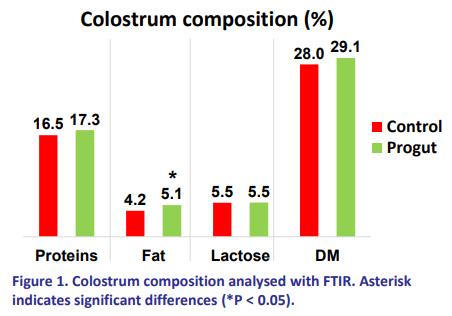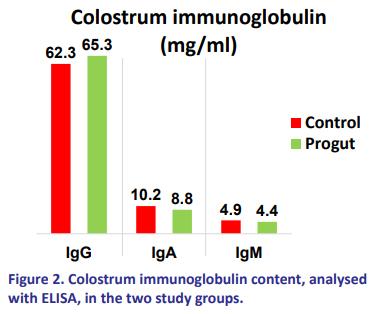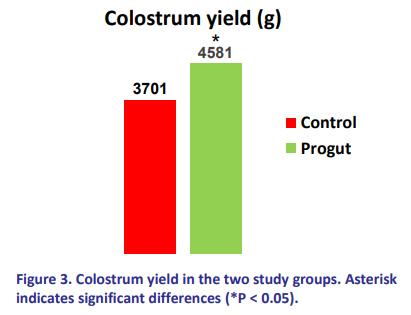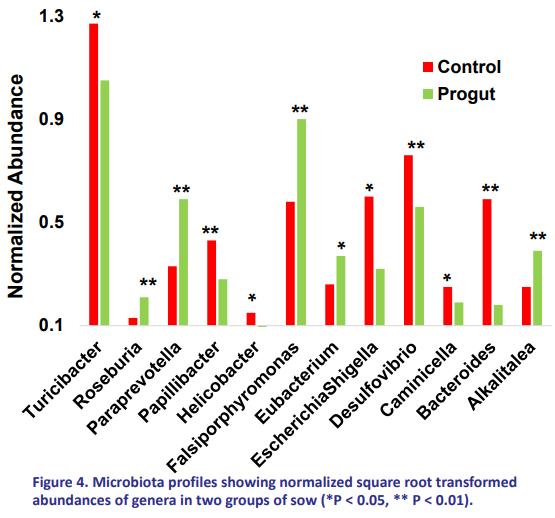Dietary supplementation of late pregnancy diet with yeast derivatives can influence the colostrum yield, colostrum composition and gut performances of sow
Published: August 8, 2018
By: Shah Hasan 1, Sami Junnikkala 2, Olli Peltoniemi 1 and Claudio Oliviero 1. / 1 Department of Production Animal Medicine, Faculty of Veterinary Medicine, University of Helsinki, Finland; 2 Department of Veterinary Bioscience, Faculty of Veterinary Medicine, University of Helsinki, Finland.
INTRODUCTION
Yeast derivatives (YD) are widely used in animal nutrition as natural additives. YD contain glucomannoproteins, betaglucans and nucleotides complex derived by acid hydrolysis of the cell wall of yeasts Saccharomyces cerevisiae. YD can bind and inhibit pathogen bacteria like Salmonella Spp, Clostridium Spp and E. Coli, therefore promoting growth of beneficial gut bacteria. YD have been also associated with positive immunostimulation at gut level in different species. The aim of this study was to examine whether YD based on brewery yeast hydrolysate added to a late pregnancy diet affected colostrum composition, yield (CY) and gut microbiota in sows.
MATERIALS AND METHODS
37 sows were randomly allocated to two groups as follows: control (n= 19) and the same diet supplemented with 2 g YD/kg (n=18) during the last 3 weeks of pregnancy. The YD used was Progut® (Hankkija Oy/Suomen Rehu, Hyvinkää, Finland). Within the first 2 hours from the beginning of farrowing, a 10 ml colostrum sample was obtained to check for protein, fat, lactose, dry matter, with FTIR- spectroscopy, IgA, IgM and IgG with ELISA. All piglets were individually weighed at birth and 24 hours later in order to calculate CY. Fecal samples were collected from sow at the beginning of farrowing and were analyzed by 16S rRNA gene sequence analysis.
RESULTS
YD fed sows had higher level of fat in colostrum (5.1% vs 4.2%; p < 0.05; Fig. 1). Colostrum yield was 3701 g in the control group and 4580 g in the YD fed group (p < 0.05; Fig. 3). Gut abundance of Roseburia, Paraprevotella, Eubacterium (a group of butyrate-producing bacteria) were significantly increased in YD supplemented sows. On the other hand, feeding sow YD significantly reduces the abundance of opportunistic pathogens bacteria like Proteobacteria especially Desulfovibrio, Escherichia/Shigella and Helicobacter.




CONCLUSION
Supplementing YD to late pregnancy diet is contributed to higher fat content and increased the CY. The treatment group was characterized with more butyrate-producing bacteria, while less opportunistic pathogens. Therefore YD added to sow diet in late pregnancy, may increase colostrum availability and also its energy content through fat increment for neonate piglets.
Poster presented at the 2017 Symposium on Gut Health in Production of Food Animals in St. Louis.
Related topics
Authors:
Influencers who recommended :
Oscar HuertaJoin to be able to comment.
Once you join Engormix, you will be able to participate in all content and forums.
* Required information
Would you like to discuss another topic? Create a new post to engage with experts in the community.
Create a post26 de junio de 2019
The work seemed interesting to me from all angles, but zootechnical and health highlight more because of the increase in the volume of production of colostrum and IgG, which would give us heavier and healthy piglets.
UNAM - Universidad Nacional Autónoma de México
5 de abril de 2019
Sorry, but I think we must consider the molecules, products, by-products generated by microbioma before indicate any benefic effect in performance in piglets or sows. The food animal industry must get an alliance with other scientist who are studing DNA or micro-arrays to offer a conclusion about any supplementation.
Universidade Federal de Viçosa - UFV
24 de marzo de 2019
Hello Hasan, consistent results. I would like to add that the positive change in the microbiota of the matrices, can also also result in benefit in the microbiota of the piglets. This possible change contributes to the health and, consequently, the development of the piglets, improving the weight of litter at weaning.
27 de septiembre de 2019
Is soy sauce cake, i.e. by-product of Kikkoman sauce contain also consider as yeast derivatives? Please comment. Thanks.












.jpg&w=3840&q=75)